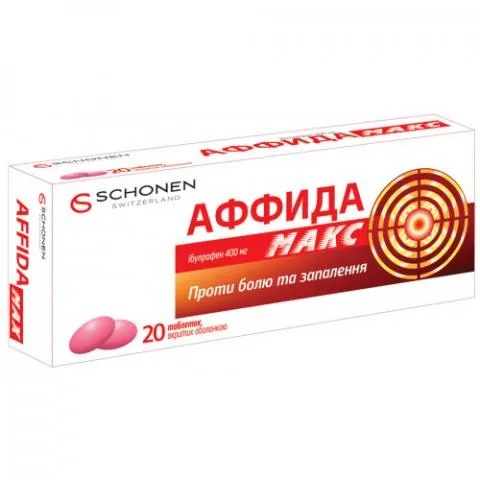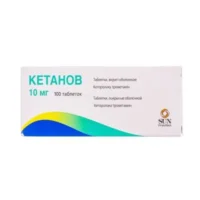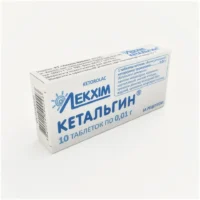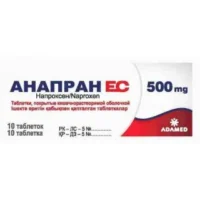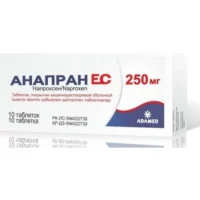Description
Affida (Ibuprofen) Max Coated Tablets 400 mg. №20
Ingredients:
- Each coated tablet contains 400 mg of ibuprofen.
Dosage:
- The recommended dosage for adults is 1 tablet every 4 to 6 hours as needed. Do not exceed 3 tablets in 24 hours.
Indications:
- Affida Max tablets are indicated for the relief of mild to moderate pain, inflammation, and fever.
Contraindications:
- Do not use Affida Max tablets if you have a history of allergic reactions to ibuprofen or other NSAIDs, or if you have active peptic ulcers.
Directions:
- Swallow the tablet whole with a full glass of water. Do not crush or chew the tablet.
Scientific Evidence:
Ibuprofen, the active ingredient in Affida Max tablets, is a nonsteroidal anti-inflammatory drug (NSAID) that works by inhibiting the production of prostaglandins, which are chemicals in the body that cause pain and inflammation. Several studies have demonstrated the efficacy of ibuprofen in relieving pain and reducing inflammation.
Additional Information:
- Affida Max tablets are formulated with a special coating for easier swallowing and to protect the stomach lining from irritation. It is important to follow the recommended dosage and not exceed the maximum daily limit to avoid potential side effects such as gastrointestinal bleeding or kidney damage.
- Consult your healthcare provider before using Affida Max tablets, especially if you have a history of gastrointestinal disorders, cardiovascular disease, or are taking other medications that may interact with ibuprofen.

